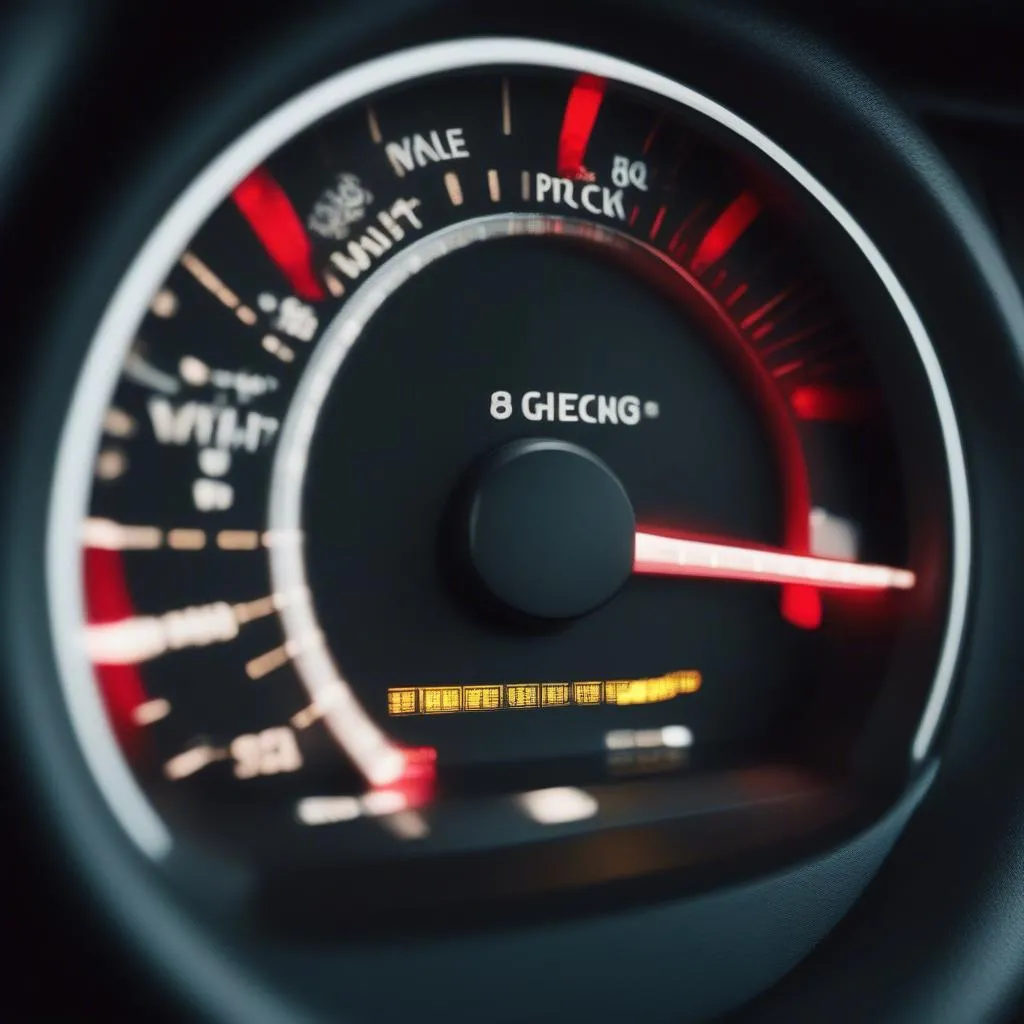Imagine this: You’re cruising down the highway, enjoying the open road, when suddenly, a dreaded symbol illuminates your dashboard – the check engine light. You’re instantly thrown into a state of worry and confusion. Is it a minor issue, or something serious that could leave you stranded?
The truth is, a flashing or flickering engine light can be caused by a multitude of factors. It’s a signal from your car’s onboard computer that something needs attention. But it’s not always a sign of a major problem.
Understanding the “Why” Behind the Engine Light
The engine light, also known as the service engine soon light, is a crucial part of your car’s diagnostic system. It acts as a communication channel between your car’s computer and you, the driver. Think of it as a warning system that alerts you to potential issues.
The Mechanics of the Engine Light
From a technical standpoint, the engine light is triggered when the Engine Control Unit (ECU) detects a problem within the engine’s operation. This problem could be anything from a loose gas cap to a faulty sensor or even a more complex malfunction.
The Cost of Neglecting the Engine Light
The cost of ignoring a flashing engine light can be significant. Not only can it lead to further damage to your engine, but it can also impact your car’s performance and efficiency. In some cases, a neglected engine light can even result in a complete engine failure, leaving you with a hefty repair bill.
Common Reasons for an Intermittent Engine Light
There are several common culprits behind a flickering engine light. Let’s explore some of the most frequent reasons:
1. Loose Gas Cap
This is often the simplest and most overlooked explanation. A loose or damaged gas cap can allow fuel vapors to escape, impacting the car’s fuel-air mixture. This can trigger the engine light.
How to Fix It: Simply tighten your gas cap. If the light remains on after a few driving cycles, it might be time to replace the cap.
2. Faulty Oxygen Sensor
Oxygen sensors play a crucial role in regulating the engine’s air-fuel mixture. A malfunctioning sensor can disrupt this balance, leading to a flickering engine light.
Symptoms of a Faulty Oxygen Sensor:
- Reduced fuel economy
- Rough idle
- Black smoke from the exhaust
3. Bad Spark Plugs
Spark plugs are essential for igniting the fuel-air mixture in the engine. Worn-out or damaged spark plugs can result in misfires, which can trigger the engine light.
Signs of Bad Spark Plugs:
- Engine misfiring
- Engine shaking
- Difficulty starting the car
4. Clogged Catalytic Converter
The catalytic converter is a crucial part of your car’s exhaust system, responsible for reducing harmful emissions. A clogged converter can hinder the engine’s performance and trigger the engine light.
Indicators of a Clogged Catalytic Converter:
- Decreased engine power
- Engine backfiring
- Loud engine noises
5. Mass Air Flow Sensor (MAF) Issues
The Mass Air Flow (MAF) sensor measures the amount of air entering the engine. A faulty MAF sensor can disrupt the fuel-air mixture, leading to a flickering engine light.
Possible Symptoms of a Faulty MAF Sensor:
- Rough engine idling
- Stalling engine
- Hesitation during acceleration
When to Seek Professional Help
While some issues causing a flickering engine light can be addressed with simple fixes, others require professional attention. If the light persists or you notice any accompanying symptoms like:
- Reduced engine power
- Loss of acceleration
- Unusual noises
- Smoke from the exhaust
It’s crucial to take your vehicle to a qualified mechanic.
The Importance of Diagnostics
Diagnosing the exact cause of a flickering engine light often involves a combination of visual inspections, diagnostic scans, and testing. This process requires specialized tools and expertise.
Why a “Check Engine” Doesn’t Always Mean Trouble
It’s important to remember that an engine light doesn’t necessarily indicate a major problem. While it’s always best to address the issue promptly, some minor glitches can be easily resolved.
What to Do When Your Engine Light Flickers
- Check the Gas Cap: Start by ensuring your gas cap is securely tightened.
- Consider the Driving Conditions: If you were recently driving in extreme temperatures or under heavy load, the light might be a temporary issue.
- Scan for Codes: If you have a OBD2 scanner, you can use it to retrieve diagnostic codes, which can provide valuable clues about the potential cause.
- Reset the Engine Light: In some cases, you might be able to reset the engine light yourself using a code reader. However, it’s crucial to address the underlying issue to prevent it from recurring.
- Seek Professional Assistance: If the light persists or you’re unsure about the cause, consult a qualified mechanic for diagnosis and repair.
Additional Frequently Asked Questions
Q: What are some other common reasons for an intermittent engine light?
Q: How often should I get my car’s engine checked?
Q: What are some things I can do to prevent engine problems?
Explore More on Diag XCar
For a deeper dive into car diagnostics, you can explore these articles on our website:
- System Diagnostic
- Why Is My Brake Light and ABS Light On?
- Most Common Car Problems
- Why Does My Engine Light Turn On and Off?
- Car Feels Shaky When Stopped
Need Help with Diagnostics Tools?
We offer expert assistance and support 24/7 to help you set up and use your diagnostics tools. Reach out to us on WhatsApp at +84767531508 for any inquiries.
Don’t let a flickering engine light cause you unnecessary stress. With the right knowledge and a little proactive maintenance, you can keep your car running smoothly.
Share this article with your friends and family who might find it helpful!



